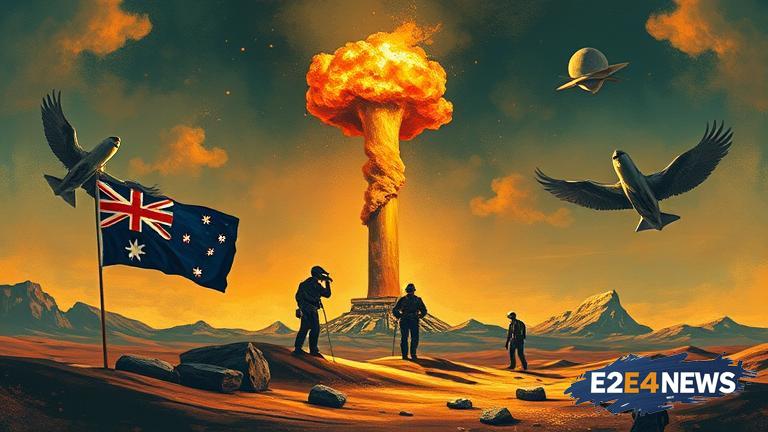Iran is currently at a pivotal moment in its history, with the country facing intense pressure from Australia to reach a nuclear deal. The Australian government has been vocal in its criticism of Iran’s nuclear program, and has called for the country to take immediate action to address concerns over its nuclear activities. The pressure from Australia comes at a time when Iran is already facing significant economic and diplomatic challenges, including crippling sanctions and international isolation. Despite these challenges, Iran has continued to pursue its nuclear program, which it claims is for peaceful purposes. However, the international community remains skeptical of Iran’s intentions, and many countries believe that the country is seeking to develop nuclear weapons. The nuclear deal, known as the Joint Comprehensive Plan of Action (JCPOA), was signed in 2015 between Iran and a group of world powers, including the United States, the United Kingdom, France, Germany, China, and Russia. The deal placed significant restrictions on Iran’s nuclear program, including limits on the country’s ability to enrich uranium and develop nuclear weapons. However, the deal has been on shaky ground since the United States withdrew from the agreement in 2018. Since then, Iran has begun to breach the terms of the deal, including exceeding limits on its uranium enrichment and developing new nuclear technologies. The international community has been working to salvage the deal, but time is running out. The European Union has been leading efforts to negotiate a new deal, but so far, no agreement has been reached. The pressure from Australia is likely to add to the sense of urgency surrounding the negotiations, and may help to push Iran towards a deal. However, it is unclear whether Iran will be willing to compromise on its nuclear program, and the country’s leaders have been defiant in the face of international pressure. The stakes are high, with a failure to reach a deal potentially leading to a nuclear arms race in the Middle East and a significant escalation of tensions between Iran and the international community. The Australian government has made it clear that it will continue to apply pressure on Iran until a deal is reached, and has called on other countries to join it in its efforts. The United States has also been applying pressure on Iran, including through the use of economic sanctions and diplomatic isolation. The European Union has been more cautious in its approach, but has also made it clear that it will not tolerate Iranian breaches of the nuclear deal. As the negotiations continue, it remains to be seen whether Iran will be willing to compromise on its nuclear program. The country’s leaders have been clear that they will not be intimidated by international pressure, and have vowed to continue pursuing their nuclear goals. However, the economic and diplomatic costs of failing to reach a deal are likely to be significant, and may ultimately force Iran to reconsider its position. The international community is holding its breath as it waits to see what will happen next, and the outcome of the negotiations is far from certain. The pressure from Australia is just the latest development in a long and complex saga, and it remains to be seen whether it will be enough to push Iran towards a deal. One thing is certain, however: the stakes are high, and the consequences of failure could be catastrophic. The world is watching as Iran and the international community engage in a high-stakes game of diplomatic poker, with the future of the Middle East hanging in the balance. The Australian government’s decision to apply pressure on Iran is a significant development, and may help to break the deadlock in the negotiations. However, it is unclear whether Iran will be willing to compromise, and the country’s leaders have been clear that they will not be intimidated. The European Union has been working to find a diplomatic solution, but so far, no agreement has been reached. The United States has been applying pressure on Iran through economic sanctions and diplomatic isolation, but it is unclear whether this approach will be effective. As the negotiations continue, it remains to be seen whether Iran will be willing to compromise on its nuclear program. The country’s leaders have been clear that they will not be intimidated by international pressure, and have vowed to continue pursuing their nuclear goals. However, the economic and diplomatic costs of failing to reach a deal are likely to be significant, and may ultimately force Iran to reconsider its position.
